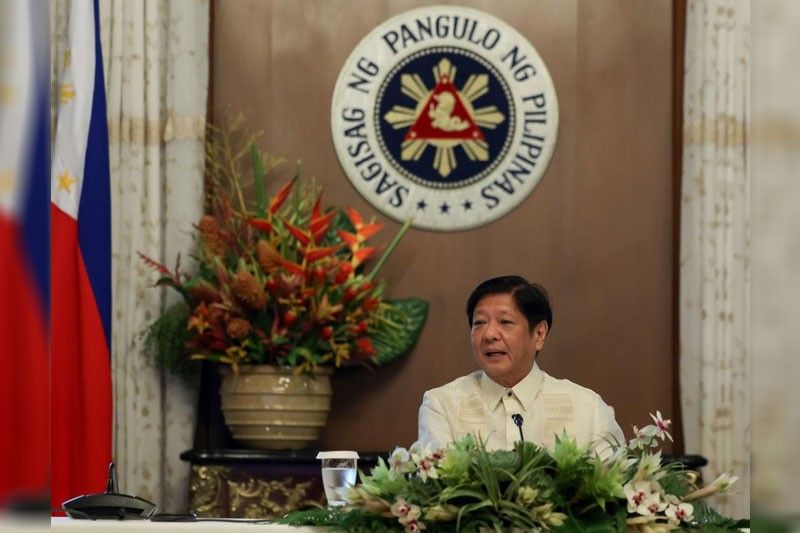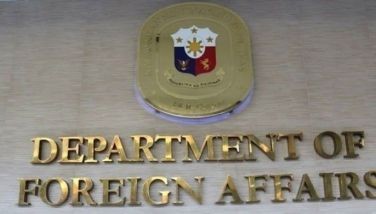Marcos attending APEC meet in California

MANILA, Philippines — President Marcos will attend the Asia-Pacific Economic Cooperation (APEC) Summit in San Francisco, California in November, wherein he is expected to push the Philippines’ energy security interests, particularly increasing the number of power sources and promoting the use of clean energy.
Marcos’ participation at the APEC Summit will be his third visit to the US since he became president in 2022.
The President traveled to New York in September to attend the 77th session of the United Nations General Assembly.
He undertook an official working visit in Washington from April 30 to May 4.
“I look forward to joining fellow APEC leaders in California later this year,” Marcos said during a courtesy call of the US-ASEAN Business Council at Malacañang yesterday.
“With energy security high on the economic agenda, we are particularly interested in sustainable land, water and ocean solutions that align with our climate goals and support our plans to transform the Philippines into an upper middle-income country by 2025,” he said.
Saying all efforts to increase the number of power sources lean toward clean energy, Marcos said he is interested in the potential of nuclear energy, especially in light of new technologies and innovations that allow the use of smaller scale, modular, nuclear and other advanced reactor technologies.
Such technologies, the President said, are seen to be safer and more efficient than the more traditional designs of nuclear power production.
“Together with the United States and other partners, especially the private sector, we will build the necessary infrastructure to help power a growing economy as we transition to clean and renewable energy,” Marcos said. “We recognize the rule that we have set for ourselves, that is the slow transition and it is slow. We all have great hopes that the transition to renewables will be easy or simple. It turns out that is not going to be the case and we have to be realistic in this regard.”
Marcos cited the need to sustain efforts to move power sources from the traditional fossil fuels to renewable energy sources.
“I hope to see more engagements involving both our governments and private sectors, especially in mobilizing financial resources for investments in key areas such as critical infrastructure, research and development, and human capital development.”
Marcos said the Philippines is actively participating in the Indo-Pacific Economic Framework for Prosperity and the APEC meetings leading up to the Leaders’ Summit in San Francisco.
Debt ratio
At the same event, Marcos admitted that the Philippines worries about its debt-to-gross domestic product ratio.
“Although we worry about our debt-to-GDP ratio in the Philippines, as it stands it’s about 63 percent and that’s a little high for us and it is not ideal. We’re doing better than our neighbors perhaps but nonetheless, it’s still something that we need to be looking at,” he said.
“And the way that we believe we can pull ourselves out of that debt ratio and improve that debt ratio is through growth. And that is why we are working very hard to continue with that growth trend,” he added.
Marcos acknowledged that the Philippines is beset by problems of inflation and that is why the monetary policy has been “quite robust and increasing.”
He said the US remains the leading strategic trading and investment partner of the Philippines and called for stronger economic engagements between the two countries.
“We certainly value the US’s contributions to our economic development and our post-pandemic recovery and we are fortunate that our economic goals complement those of the US since taking office,” Marcos said.
He said that supporting agriculture and food security, promoting energy security, transitioning to clean energy, boosting trade and increasing the resilience of supply chains, enhancing connectivity and digitalization are among the priority areas that would set the direction of the Philippines’ economic policies.
“To that end, I have called for the enhanced Philippine and US economic engagement to boost two-way trade and investment, especially in critical sectors such as infrastructure, agriculture, clean energy, including nuclear energy, green metals and critical minerals, IT-BPM (information technology and business process management) and semiconductors, all while building economic resilience in the face of climate change, the pandemics, humanitarian response and other security challenges,” he said.
- Latest
- Trending































